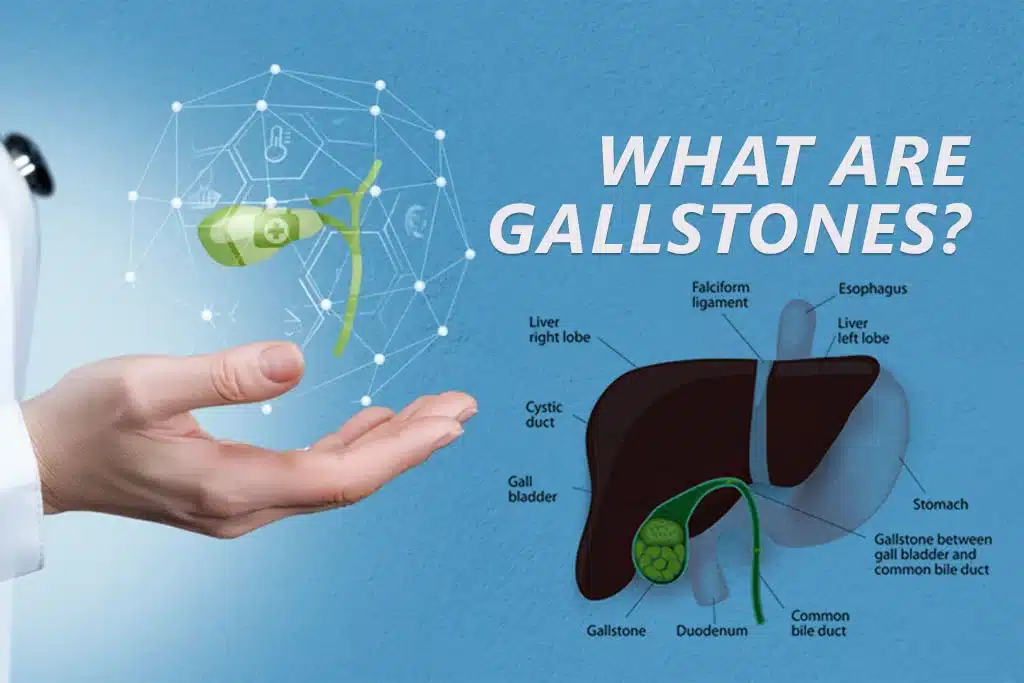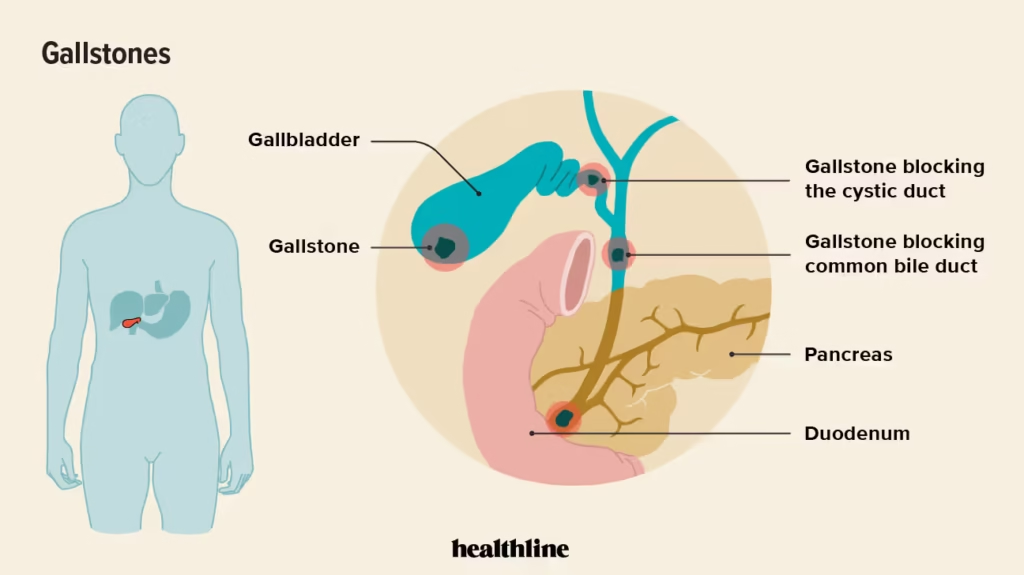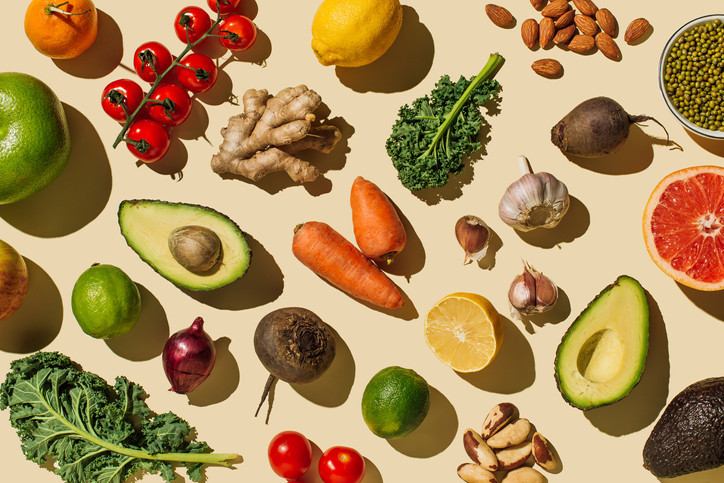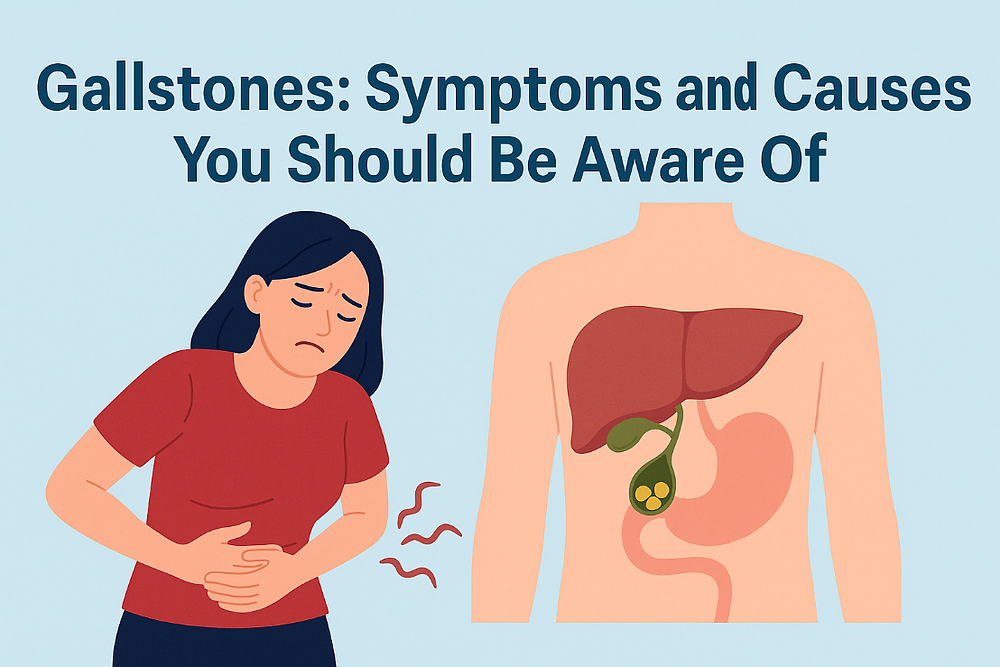Introduction
Digestive health plays a major role in overall well-being, but when gallstones and digestion problems occur, even simple meals can turn into uncomfortable experiences. These issues can disrupt nutrient absorption, trigger pain, and lower energy levels.
The presence of gallstones directly impacts gallstones and digestive health, and for many people, the outcome is a series of digestive problems caused by gallstones such as bloating, constipation, or indigestion.

This article explores the most common gallstones and digestion problems, their symptoms, and the proven solutions available in 2025.
Gallstones and Digestion Problems Explained
The link between gallstones and digestion problems is often underestimated. Gallstones are hardened deposits that can block bile ducts, preventing bile from flowing into the small intestine.
Without bile, fat digestion becomes difficult, leading to discomfort and malabsorption. This explains why digestive problems caused by gallstones are so common. For many, untreated issues become a long-term health challenge that affects both energy levels and nutrient intake.
Gallstones Symptoms and Digestion Issues
The symptoms tied to gallstones and digestion problems can be confusing because they often resemble other digestive disorders. Common signs include:
- Bloating and gas
- Nausea and vomiting
- Gallstones and stomach pain after eating, especially fatty meals
These issues demonstrate why early diagnosis is critical. If ignored, these problems may progress into more severe digestive conditions.

How Gallstones Affect Digestion
A key reason why these problems are so disruptive is their effect on bile flow. Bile is necessary for breaking down fats, and blocked ducts make this process inefficient.
This creates a strong connection between gallstones and digestive problems. Some individuals even ask, “Can gallstones cause acid reflux?” While reflux isn’t directly caused by stones, the slower digestion linked to these problems can worsen reflux-like symptoms.
Gallstones and Bloating: Why It Happens
One of the most common digestive issues linked to gallstones is bloating. Because bile isn’t released properly, fats stay longer in the gut and ferment, producing excess gas.
The outcome is gallstones and bloating, often paired with abdominal discomfort. This is one of the clearest ways gallstones and digestion problems impact everyday quality of life.
Gallstones and Indigestion: The Hidden Connection
Indigestion is another frequent result of gallstones and digestion problems. Since bile is essential for smooth digestion, any interruption can leave meals partially digested.
This makes gallstones and indigestion a recurring issue for those with gallbladder disease. Over time, untreated indigestion highlights why gallstones and digestion problems require medical attention.
Gallstones and Nutrient Absorption Problems
Another overlooked aspect of these problems is their impact on nutrient absorption. Without enough bile, the body struggles to absorb vitamins A, D, E, and K.
This leads to gallstones and nutrient absorption problems, which can cause fatigue, poor immunity, and bone weakness. Patients may also notice bowel changes, including gallstones and diarrhea or gallstones and constipation.
These changes further confirm that gallstones and digestion problems are not just temporary discomforts but long-term health challenges.
Proven Solutions for Gallstones and Digestive Health
The good news is that there are solutions to manage gallstones and digestion problems. Doctors often recommend:
- Low-fat, high-fiber diets to ease digestion
- Smaller, frequent meals to reduce gallbladder strain
- Proper hydration to keep bile flowing
- Medical treatment or surgery in advanced cases
After surgery, patients often ask about gallbladder removal and digestion changes. While the body adapts, some people still experience mild gallstones and digestion problems if dietary habits don’t improve.

FAQs on Gallstones and Digestion Problems
Q1: What is the connection between gallstones and digestive problems?
There’s a direct link: gallstones block bile ducts, making it harder to digest fats and absorb nutrients. This explains why gallstones and digestion problems are so common.
Q2: Can gallstones cause acid reflux?
They don’t directly cause reflux, but gallstones and digestion problems slow food breakdown, which can increase reflux-like symptoms.
Q3: Do gallstones cause diarrhea or constipation?
Yes. Both gallstones and diarrhea and gallstones and constipation can occur depending on bile flow. These are among the most common digestive issues linked to gallstones.
Q4: What changes occur in digestion after gallbladder removal?
Gallbladder removal and digestion changes include difficulty digesting fatty meals. However, lifestyle changes can reduce long-term gallstones and digestion problems.
Conclusion
In closing, gallstones and digestion problems represent a growing concern in 2025. They lead to bloating, indigestion, nutrient malabsorption, and bowel changes, all of which impact daily life.
The key is recognizing digestive problems caused by gallstones early and taking steps through diet, hydration, or medical treatments. With proper care, most gallstones and digestion problems can be managed, allowing individuals to restore their digestive health.
Related Articles
Can Gallstones Cause Weight Gain?
Gallbladder Weight Gain: 5 Key Facts
Can Gallbladder Issues Cause Weight Gain?

